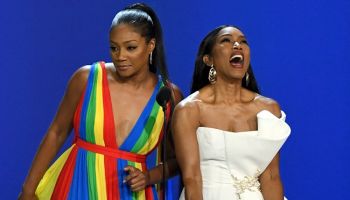Two women said they were refused part-time employment at a Six Flags amusement park in Prince George’s County, Maryland after being told their dreadlocks violated the company’s grooming policy.
The park is located in Largo, an area with a 93 percent black population.
In an interview with WJLA-TV, an ABC affiliate Janet Bellow said a supervisor told her management is adhering strictly this year to a longtime corporate grooming policy that considers dreadlocks to be an “extreme” hairstyle.
According to a copy of the policy obtained by the station, Six Flags does not allow “any hairstyle that detracts or takes away from Six Flags’ theme.”
It does not specify what the park’s theme is or how dreadlocks would affect it.
A spokesperson for the American Civil Liberties Union said while companies are allowed to enforce reasonable grooming polices that specifically identifying dreadlocks as unacceptable is at the very least racially insensitive and could be discriminatory.
Jackie Sherrill said she worked at Six Flags last summer and received a letter earlier this year asking her to come back, but when a supervisor saw her locs, she was told she could not come back until she changed her appearance. The 60-year-old woman said she had locs last year and was allowed to work.
“You’re willing to allow me to pay to come into your park, enjoy your services, but I can’t work for you,” Sherrill told the TV station.
It’s not the first time the company has had run-ins with its treatment of African Americans.
In 2004, Six Flags, Inc., agreed to pay $5.6 million to settle a class-action lawsuit that accused security guards at Six Flags Magic Mountain in Valencia, Calif., of improperly searching visitors and excluding them solely on their appearance.
The company denied any wrongdoing, but agreed to provide diversity training for employees, as well as allow lawyers for plaintiffs in the case to review records for the following four years to see who was turned away from the park.

















